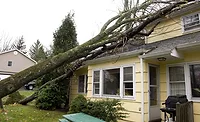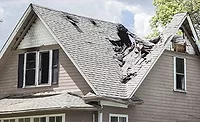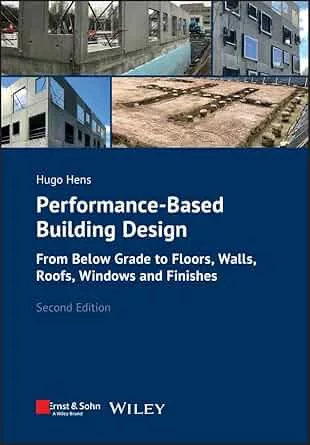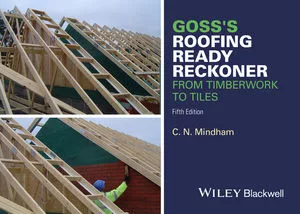Regulatory News
La. Weighs Banning Roofers from Assisting with Insurance Claims
Potential ban follows moves by Iowa, Texas and Florida limiting roofing contractors’ ability to act on behalf of homeowners
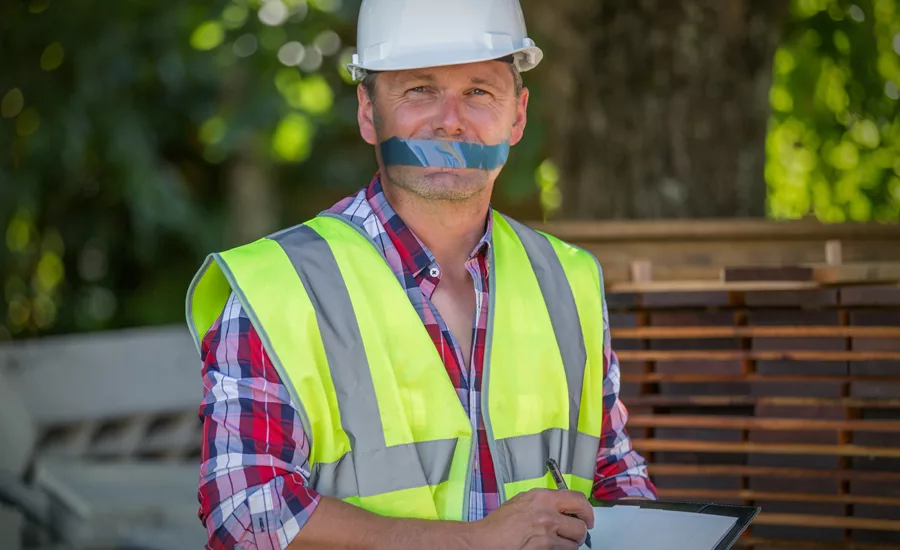
Louisiana lawmakers are weighing legislation that would bar roofing contractors from assisting homeowners with insurance claims under the guise of curbing fraud and lowering premiums; roofers warn this could cripple operations and leave consumers stranded.
— Chris Pirrone/Roofing Contractor | Elements: bernatets photo | Shutterstock
Louisiana lawmakers advanced a proposal last week that would bar roofing contractors from helping homeowners file or negotiate insurance claims.
It's a move supporters say will curb fraud and lower premiums but that roofers warn could cripple their operations and leave consumers stranded.
Known as House Bill 121, the measure passed the House Insurance Committee 13–0 on April 23 and now heads to the full House for a vote.
The measure would amend state law to make it a crime — punishable by up to $5,000 per violation — for any contractor repairing or replacing a roof to “advertise, solicit, or provide insurance claims handling or policy interpretation related services … prior to the insured’s initiation of a claim.”
It would also forbid licensed public adjusters from performing any repair work on claims they handle.
Supporters argue the bill restores clear professional boundaries and tackles “storm-chaser” abuses blamed for inflating claim costs through assignment of benefits, or AOBs.
Committee Chairman Gabe Firment, a veteran insurance consultant, told colleagues that roofers “being tradesmen and not salesmen” is critical to prevent inflated or fraudulent claims, according to reporting by the Louisiana Illuminator.
Rep. Chance Henry, who owns an insurance agency, added that homeowners could already hire licensed public adjusters for disputes, so contractors “should stick to roofing.”
In a joint statement with the St. Tammany Parish Sheriff’s Office, Insurance Commissioner Tim Temple warned that “bad actors” among storm-damage contractors drive up rates for all policyholders.
Does One Bad Apple Spoil the Cart?
Pushing back on that supposition, roofing industry representatives say HB 121’s sweeping language could criminalize everyday services, such as sending damage estimates or explaining deductibles, and cut off a vital revenue stream.
Josh Lovell, sales manager at Gator Roofing in Baton Rouge, told the committee, “If we can’t even talk about any of the process, then you’re just giving all the power to the insurance company. And do you trust insurance companies like that?”
Jonathan Davis, a board member of the Residential Roofing Association of Louisiana, warned that contingency agreements — where contractors are paid only if claims are approved — account for 20% to 40% of the revenue of many small firms.
“I know there are good and bad companies just like every industry,” Davis said. “I think that this would hurt everybody — not just the bad actors.”
He and Lovell urged lawmakers to narrow the bill’s definitions to exempt routine estimates and referrals.
Absent a Louisiana fiscal note or independent cost–benefit analysis, neither appears on the legislature’s website. Roofers estimate that compliance costs (including legal reviews, new contract forms, and staff training) could run $2,000–$5,000 per firm annually. At the same time, lost contingency fees might cut gross margins by as much as 10%.
Conversely, insurers project that “claim severity” could drop by up to 15% if AOB abuses are constrained. However, policyholders may face higher out-of-pocket expenses if they are forced to hire public adjusters, charging up to 10% of a claim’s value, effectively negating any perceived savings.
Consumer advocacy groups are split. Some praise the bill’s intent to combat fraud; others caution that it may leave vulnerable homeowners without affordable claim guidance.
A New Orleans consumer-protection attorney, speaking on condition of anonymity and quoted in the Property Insurance Coverage Law Blog, stated that forcing policyholders to pay public adjuster fees — often upwards of 10% of the claim value — could deter low-income residents from pursuing legitimate claims.
Legal experts note Louisiana must thread a narrow path: bans that are too broad risk First Amendment and 14th Amendment due-process challenges, as raised in the Iowa litigation.
“The state can regulate adjusting conduct, but it cannot unduly stifle contractors’ speech about their services,” said University of Iowa insurance law scholar Martin Grace.
Davis, the Roofers’ Association board member, also challenged lawmakers’ assertions, stating that adjusters are experts in interpreting insurance policies but lack in-depth knowledge of roof construction and damage assessments.
Davis warned that the bill’s ambiguous provisions could render it illegal for roofers even to send damage estimates to an insurance adjuster.
RELATED
Iowa Targets Roofing Contractors, What You Need to Know
Other States’ Efforts
Similar laws exist elsewhere, and their impacts are mixed.
In Iowa, the Insurance Division has issued multiple cease-and-desist orders against roofers advertising claim-handling services, citing unlicensed public adjusting statutes. Shamrock Roofing, a Kansas-based firm, has sued the Iowa Insurance Division, calling the rules “a content-based restriction on free speech.”
The Insurance Division states that the laws protect Iowans by ensuring homeowners or licensed adjusters negotiate claims, not contractors.
Florida’s 2019 assignment-of-benefits reforms prohibit contractors from negotiating claims or offering deductible rebates, carrying fines up to $10,000 and felony penalties for repeat violations.
While Tallahassee asserts that the measure has reduced AOB litigation, its imposed contract-notice and record-keeping requirements have also placed additional burdens on roofers, industry advocates say.
Texas law similarly prohibits roofers from acting as public adjusters on jobs they repair; the Texas Department of Insurance warns that advertising claim-negotiation services without a license violates the state's insurance codes.
Insurance Journal reports that the Texas Supreme Court recently upheld the bans, rejecting free-speech challenges and affirming regulators’ authority to enforce professional boundaries.
Quick Read: 5 Takeaways
- Louisiana Bill Could Criminalize Routine Roofer-Client Interactions: House Bill 121 would ban roofers from assisting homeowners with insurance claims before the policyholder initiates one, including offering advice or estimates, potentially making everyday services illegal.
- Industry Pushback Cites Revenue Loss and Consumer Harm: Roofing pros warn the bill could gut contingency-based income (20–40% of revenue for some), increase compliance costs, and limit homeowner access to affordable claims help.
- Supporters Say It’s About Curbing Fraud, Not Targeting Roofers: Supporters argue the measure protects against “storm-chaser” abuse and inflated claims. They say licensed public adjusters already exist for disputes — contractors should focus on roofing, not negotiating.
- Other States Offer Cautionary Lessons: Similar laws in Iowa, Florida, and Texas have led to legal challenges, administrative burdens, and debate over free speech. Outcomes show reduced fraud but increased friction for legitimate contractors.
- Legal and Practical Ambiguities Raise Constitutional Questions: Critics, including consumer advocates and legal scholars, warn that HB 121 could face First and 14th Amendment challenges if applied too broadly, and may unintentionally restrict contractors’ lawful communication.
As HB 121 moves toward a House floor vote, which has yet to be scheduled, roofers are pressing for amendments to clarify that providing damage estimates, explaining policy terms and referring clients to adjusters remain lawful.
Small contractors say they face impossible choices without carve-outs: risk steep fines or abandon claim-assistance services that clients rely on.
Lawmakers must decide whether consumer protection and premium relief outweigh potential harm to Louisiana’s roofing businesses and homeowners who count on their contractors’ expertise.
Looking for a reprint of this article?
From high-res PDFs to custom plaques, order your copy today!




